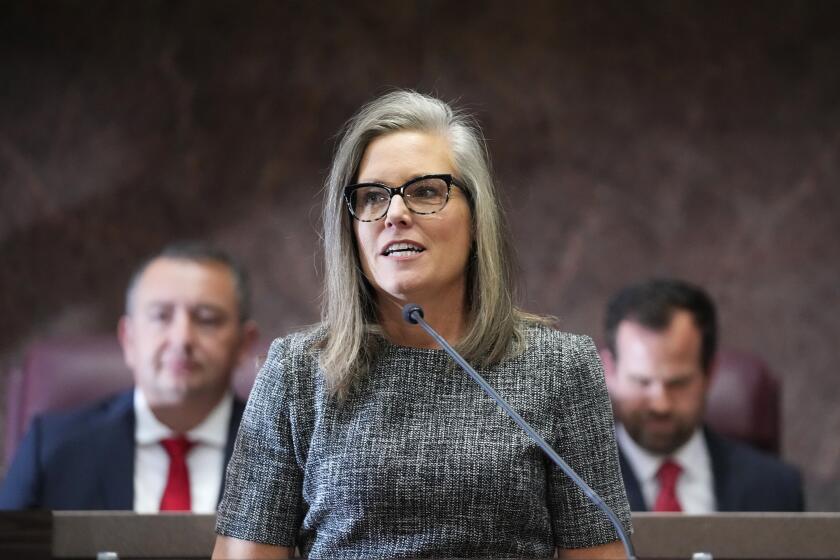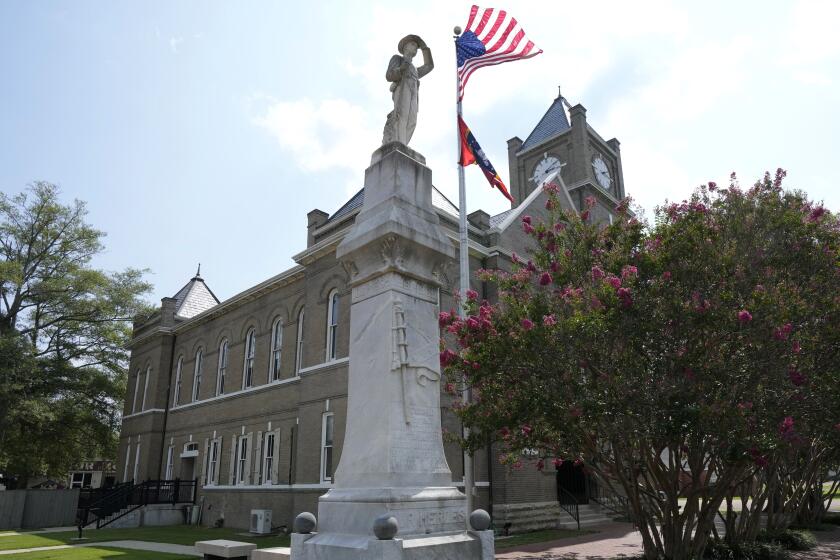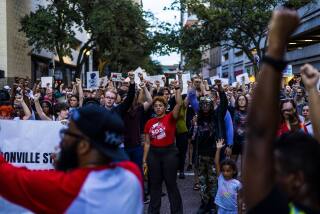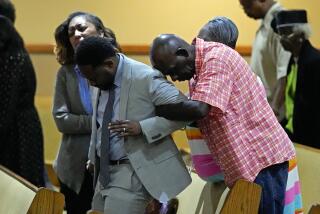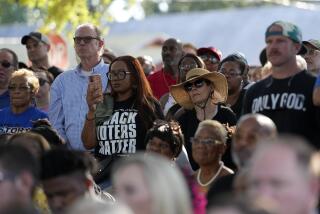Column: Video of Montgomery racial brawl shows it’s not enough to be ‘not racist’
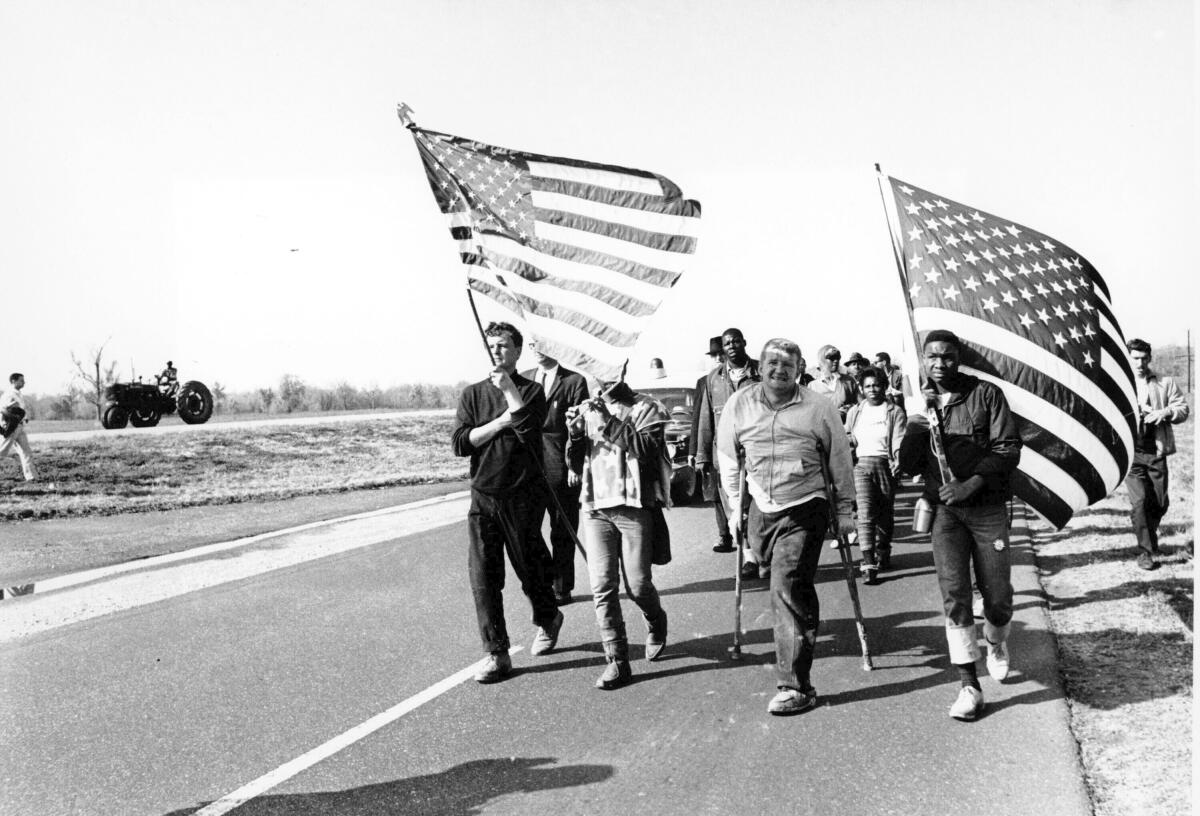
By now, you should have seen video of the brawl at the dock in Montgomery, Ala., but just in case you were busy, here’s a quick recap: On Saturday, a Black man who appears to be a dock employee is untying a pontoon boat when he is physically attacked by a group of white men that quickly grows and overwhelms him.
As horrible as that scene was to watch, the reason the video has gone viral is because of the Black people who intervened and ended the clash. Their heroics have inspired memes and creative nicknames for the Black 16-year-old who can be seen swimming to the dock to render help. (For what it’s worth, my vote is for Shaquille O’Gills.)
Now that we’re all on the same page, I have a question for you: Who do you think would have intervened had it not been for the Black people nearby?
Opinion Columnist
LZ Granderson
LZ Granderson writes about culture, politics, sports and navigating life in America.
As you watch that sole Black man fall to the ground — outnumbered and overwhelmed — do you wonder when and how the beating would have stopped if Black people hadn’t intervened? Do you find yourself looking at the actions of those white men with disgust?
Good.
Now let’s talk: The reason we continue to be reminded about our past isn’t that the media keep bringing it up. It’s not because liberal teachers are indoctrinating children with racist history books. It’s not even the politicians who use our fears about race to get reelected.
No, we’re still here because of “Not Racist White People.”
The kind of well-meaning soul who looks at the actions of the white men attacking that dock worker and thinks: That’s not me. What our polarized society has always needed was more white people who look at a situation like that and imagine themselves in the position of that sole Black man. Since Reconstruction, that’s been the one ingredient that’s missing each time Congress cooked up a plan to heal our wounds. As long as well-meaning white people think “I’m not like those hooligans,” rather than focusing on the suffering of the victim, America will be on this hamster wheel.
Racism inspired the explosion of private religious schools after Brown vs. Board of Education in 1954. Cost to taxpayers may be their undoing.
It’s not unreasonable to question whether race was a factor in the melee at the dock. It really doesn’t matter to the larger point. We have been conditioned to measure the progress of racial reconciliation using a rubric based on distance from hate. It’s evident in phrases such as “that was a long time ago” or “that’s not me.”
The truth is our progress as a society has always depended on our proximity to love, not our distance from hate. Anyone who watches that video and thinks “that’s not me” has been fooled into perceiving progress. But “that’s not me” only reveals what we are not. Love reveals who we are. That’s because love is a practice, to paraphrase the poet bell hooks, who once wrote “without an ethic of love shaping the direction of our political vision and our radical aspirations, we are often seduced, in one way or the other, into continued allegiance to systems of domination — imperialism, sexism, racism, classism.”
Biden’s decision to declare a national monument is not a volley in the culture wars. It’s a long-overdue recognition.
As humorous as some of the jokes on social media are about the incident, for many of us who want to see the world become a better place, it is a nervous laugh. Let’s just say the cavalry of bystanders hasn’t always swung into action in time. Members of the National Assn. of Black Journalists gathered in Birmingham for our annual convention last week and toured landmarks of the civil rights era on the same day as the dock incident.
We all know it could have turned out a lot worse — and “that’s not me” is not what came to his aid.
In fact, “that’s not me” rarely does anything at all.
More to Read
A cure for the common opinion
Get thought-provoking perspectives with our weekly newsletter.
You may occasionally receive promotional content from the Los Angeles Times.

